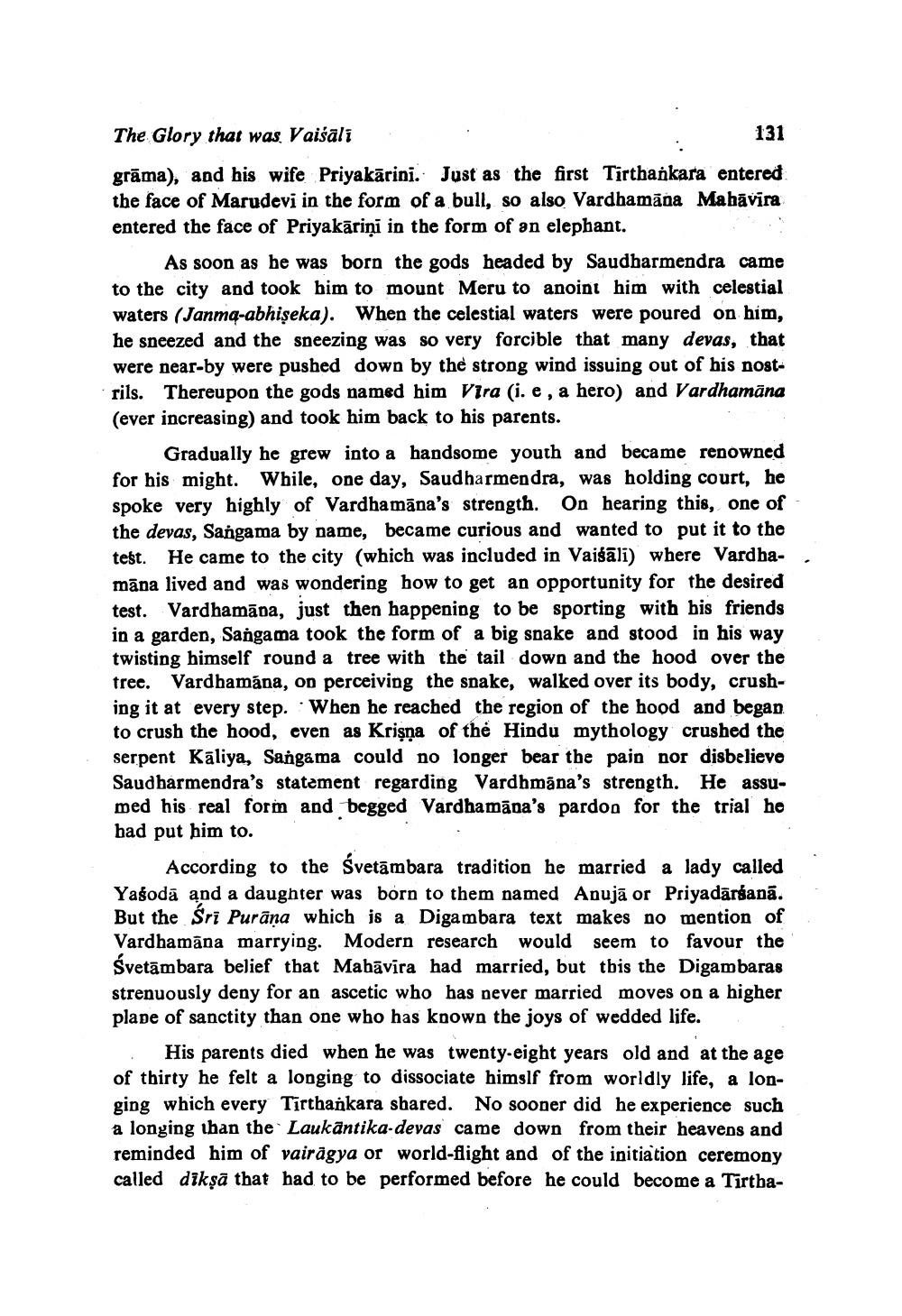________________ The Glory that was Vaisali 131 grama), and his wife Priyakarini. Just as the first Tirthankara entered the face of Marudevi in the form of a bull, so also Vardhamana Mabavira entered the face of Priyakarini in the form of an elephant. As soon as he was born the gods headed by Saudharmendra came to the city and took him to mount Meru to anoint him with celestial waters (Janma-abhiseka). When the celestial waters were poured on him, he sneezed and the sneezing was so very forcible that many devas, that were near-by were pushed down by the strong wind issuing out of his nostrils. Thereupon the gods named him Vira (i. e, a hero) and Vardhamana (ever increasing) and took him back to his parents. Gradually he grew into a handsome youth and became renowned for his might. While, one day, Saudharmendra, was holding court, he spoke very highly of Vardhamana's strength. On hearing this, one of the devas, Sangama by name, became curious and wanted to put it to the test. He came to the city (which was included in Vaisali) where Vardbamana lived and was wondering how to get an opportunity for the desired test. Vardhamana, just then happening to be sporting with his friends in a garden, Sangama took the form of a big snake and stood in his way twisting himself round a tree with the tail down and the hood over the tree. Vardhamana, op perceiving the snake, walked over its body, crushing it at every step. When he reached the region of the hood and began. to crush the hood, even as Krisna of the Hindu mythology crushed the serpent Kaliya, Sangama could no longer bear the pain nor disbelieve Saudharmendra's statement regarding Vardhmana's strength. He assumed his real form and begged Vardhamana's pardon for the trial he had put him to. According to the Svetambara tradition he married a lady called Yagoda and a daughter was born to them named Anuja or Priyadargana. But the Sri Purana which is a Digambara text makes no mention of Vardhamana marrying. Modern research would seem to favour the Svetambara belief that Mabavira had married, but this the Digambaras strenuously deny for an ascetic who has never married moves on a higher plape of sanctity than one who has known the joys of wedded life. His parents died when he was twenty-eight years old and at the age of thirty he felt a longing to dissociate himslf from worldly life, a longing which every Tirthankara shared. No sooner did he experience a longing than the Laukantika-devas came down from their heavens and reminded him of vairagya or world-flight and of the initiation ceremony called diksa that had to be performed before he could become a Tirtha




